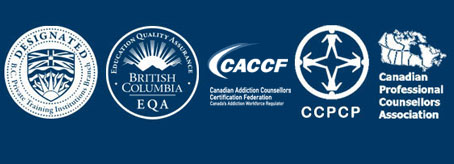Conflict, Suicide and Emergency Interventions

CSE-400 Conflict, Suicide and Emergency Interventions
The course in a nutshell:
Discussion topics: Understanding how the ABC model is used to intervene and resolve emergency situations such as intense conflict, suicide and other types of crisis.
Skills: You’ll learn to assess the degree of suicidal and homicidal risk, suicide contracting; plus counselling victims of crime and other types of trauma.
COURSE CONTENT
Professional counsellors must be prepared to handle intense conflict, suicide and/or crisis situations as they arise. This course will provide you with the knowledge and skills necessary to handle mental health emergencies. You will receive instruction in therapeutic intervention techniques based on the ABC Model of Crisis Intervention. These skills can be used to resolve day-to-day conflicts or emergency situations. The following list includes examples of the types of crisis situations addressed in this course:
Suicide
Anger control
Substance abuse intervention,
PTSD
Sudden death
The elderly and Alzheimer’s patients
Victims of crime including sexual assault
AIDS
Community disasters and Trauma response
Child and Domestic abuse
PORTFOLIO OF JOB SKILLS
What you will learn:
Your level of proficiency and competence with the skills introduced in this course will deepen as you proceed through the program. Upon graduation from the Diploma or Certificate program, you may include the following skills as part of your Professional Portfolio:
- Ability to conduct an assessment interview to identify:
- risk of suicide or other self-harming behaviors
- severe mental disorders
- danger to the client or counselor
- homicidal intent
- Ability to identify the differences between situations calling for crisis intervention vs. a non-crisis counseling process and to respond with the appropriate treatment strategies.
- Ability to apply the 3 procedural steps of the ABC Model of Crisis Intervention.
- Ability to recognize and deal with complicating factors, such as substance abuse, mental illness, or intense anger, which could escalate the conflict or crisis.
- Ability to implement a “no-harm contract”, or other safety protocols including appropriate referrals as part of the intervention plan.
- Ability to use counseling skills such as empathy and reflective listening to build trust and establish rapport necessary for collaborative goal setting throughout the crisis intervention.
- Ability to develop follow-up procedures.
- Ability to respond with cultural sensitivity in all types of crisis situations.
- Ability to recognize the ethical and legal implications involved in dealing with a crisis or emergency situation, including limits of confidentiality and ‘duty to warn’.
- Ability to recognize and practice within the limits of your scope of training and to consult your supervisor or refer to other service providers when necessary.
- The ability to use supervision and self-care to guard against the effects of secondary PTSD and to prevent burnout.
(NOTE: The skill set you will learn in this course comprises areas of core competence required for the practice of professional counselling.)






